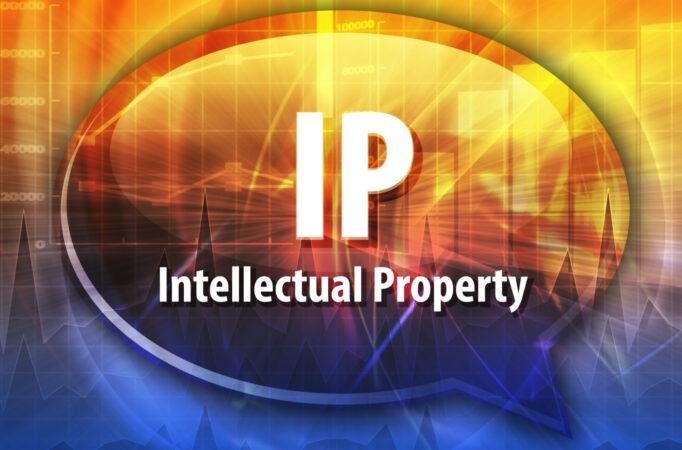Intellectual Property Litigation, Protection, Prosecution and AI Legal Matters
Defending the Algorithm™: A Bayesian Analysis of AI Litigation and Law
Listen to this Blog Post with Additional Commentary from the Author - 15:00 min.
Historic $1.5 Billion Settlement: What the Bartz v. Anthropic Copyright Case Means for AI and Creative Industries
This blog post is another in the series “Defending the Algorithm™” edited by Henry M. Sneath, and was authored completely by Claude® from Anthropic Sonnet Edition 4. Claude can make mistakes so please double-check this content if you intend to rely on it.
The artificial intelligence landscape shifted dramatically this month when Anthropic, the company behind the popular Claude chatbot, agreed to pay $1.5 billion to settle a class-action copyright lawsuit brought by authors and publishers. This landmark settlement, which is awaiting court approval from Judge William Alsup in the Northern District of California at 24-cv-05417-WHA, represents the largest copyright recovery in U.S. history and establishes important precedents for how AI companies can legally use copyrighted material to train their systems.
The Foundational Legal Framework: Judge Alsup's Groundbreaking Ruling
The recent settlement follows federal Judge Alsup's pivotal June 23, 2025 Summary Judgment decision in Bartz v. Anthropic, which created the first substantive judicial framework for AI copyright law. Judge Alsup's ruling fundamentally shapes how copyright law applies to artificial intelligence training by establishing a crucial legal distinction between permissible and impermissible uses of copyrighted material.
In his fair use analysis, Judge Alsup found that training AI models on copyrighted works constitutes fair use when copies are legally obtained. Applying the four-factor fair use test, he determined the use was "quintessentially transformative" because AI systems don't replicate works but instead create fundamentally different outputs. He analogized AI training to "any reader aspiring to be a writer" who studies existing works "not to race ahead and replicate or supplant them — but to turn a hard corner and create something different."
This transformative use analysis is particularly significant because it focuses on the AI's ultimate purpose rather than the intermediate copying during training. The decision suggests courts may view AI training as sufficiently transformative to overcome both the commercial nature of the use and the wholesale copying of protected works—two factors that typically weigh against fair use.
Judge Alsup also addressed Anthropic's digitization of legally purchased books, ruling this too constituted fair use because the company simply "replaced the print copies it had purchased for its central library with more convenient space-saving and searchable digital copies" without adding new copies or redistributing existing ones. Judge Alsup, however, found that certain AI training actions constitute “piracy” and he denied summary judgment and was prepared to allow this issue to go to trial. Read more on Piracy below.
The 17 U.S.C. §107 Four-Factor Copyright Fair Use Test
Under U.S. copyright law, fair use is determined by evaluating four factors: (1) the purpose and character of the use, including whether it's transformative and commercial; (2) the nature of the copyrighted work, with factual works receiving less protection than creative ones; (3) the amount and substantiality of the portion used relative to the whole work; and (4) the effect of the use on the market for or value of the original work. In the Anthropic case, Judge Alsup found the transformative nature of AI training—creating entirely new outputs rather than reproducing existing works—was so compelling that it outweighed factors that typically disfavor fair use, such as the commercial purpose and the copying of entire books.
The Critical Piracy Distinction: Summary Judgment Denied
However, Judge Alsup rejected Anthropic's argument that downloading books from piracy sites like Library Genesis should receive the same fair use protection. This creates a bright-line rule that has become central to AI copyright jurisprudence: the fair use defense for AI training depends entirely on lawful acquisition of source materials. Companies cannot cure illegal acquisition through fair use claims about subsequent training purposes.
The judge wrote that Anthropic “downloaded for free millions of copyrighted books in digital form from pirate sites as part of an effort to amass a central library of all the books in the world to retain forever." He explicitly refused to treat "pirated library copies" the same as legitimate training materials, allowing the authors' piracy claims to proceed to trial.
Financial Impact and Settlement Terms
Under the settlement terms, Anthropic will pay approximately $3,000 per book to roughly 500,000 affected authors. The company has also agreed to delete the pirated works it downloaded from shadow libraries. This substantial payout comes at a time when Anthropic recently completed a $13 billion funding round, bringing its total valuation to $183 billion.
The settlement sends a clear message to the AI industry about the financial consequences of using illegally obtained copyrighted material. As Authors Guild CEO Mary Rasenberger noted, "This historic settlement is a vital step in acknowledging that AI companies cannot simply steal authors' creative work to build their AI."
Had Anthropic proceeded to trial on the piracy claims, experts estimated potential damages could have reached multiple billions of dollars—enough to potentially cripple the company given that statutory damages for willful copyright infringement can reach $150,000 per work.
Industry Implications and Future Framework
While Judge Alsup's Northern District of California ruling isn't binding nationwide, it provides the first substantive judicial guidance on AI fair use that future courts will undoubtedly reference. The decision likely encourages legitimate licensing arrangements while establishing clear liability for companies using pirated training data.
Industry experts view this development as "the beginning of a necessary evolution toward a legitimate, market-based licensing scheme for training data" rather than the end of AI innovation. The settlement may encourage more licensing agreements between AI companies and content creators, fostering a sustainable ecosystem where creators receive compensation while AI companies gain legal certainty.
For businesses and creators alike, this case establishes that AI companies can legally train on copyrighted works obtained through legitimate channels, while facing significant liability for using pirated materials. As the technology continues to evolve, we can expect this precedent to influence how AI companies source and license training data going forward.
Thanks to Claude®. Houston Harbaugh's AI and Intellectual Property Team continues to monitor developments in AI and Copyright law. For questions about how these changes may affect your business or creative work, please contact Henry M. Sneath in our office.
About Us
The IP, Technology, AI and Trade Secret attorneys at Houston Harbaugh, P.C., have extensive courtroom, jury and non-jury trial and tribunal experience representing industrial, financial, individual and business clients in IP and AI counseling, infringement litigation, trade secret protection and misappropriation litigation, and the overall creation and protection of intellectual property rights in an AI driven world. Our team combines extensive litigation experience with comprehensive knowledge of rapidly evolving AI and technology landscapes. From our law office in Pittsburgh, we serve a diverse portfolio of clients across Pennsylvania and other jurisdictions, providing strategic counsel in patent disputes, trade secret protection, IP portfolio development, and AI-related intellectual property matters. Our Trade Secret Law Practice is federally trademark identified by DTSALaw®. We practice before the United States Patent and Trademark Office (USPTO) and we and our partners and affiliates apply for and prosecute applications for patents, trademarks and copyrights. Whether navigating AI implementation challenges, defending against infringement claims, or developing comprehensive IP strategies for emerging technologies, our team provides sophisticated representation for industrial leaders, technology companies, financial institutions, and innovative businesses in Pennsylvania and beyond.
IP section chair Henry Sneath, in addition to his litigation practice, is currently serving as a Special Master in the United States District Court for the Western District of Pennsylvania in complex patent litigation by appointment of the court. Pittsburgh, Pennsylvania Intellectual Property Lawyers | Infringement Litigation | Attorneys | Patent, Trademark, Copyright | DTSALaw® | AI | Artificial Intelligence | Defending the Algorithm™

Henry M. Sneath - Practice Chair
Co-Chair of Houston Harbaugh’s Litigation Practice, and Chair of its Intellectual Property Practice, Henry Sneath is a trial attorney, mediator, arbitrator and Federal Court Approved Mediation Neutral and Special Master with extensive federal and state court trial experience in cases involving commercial disputes, breach of contract litigation, intellectual property matters, patent, trademark and copyright infringement, trade secret misappropriation, DTSA claims, cyber security and data breach prevention, mitigation and litigation, probate trusts and estates litigation, construction claims, eminent domain, professional negligence lawsuits, pharmaceutical, products liability and catastrophic injury litigation, insurance coverage, and insurance bad faith claims. He is currently serving as both lead trial counsel and local co-trial counsel in complex business and breach of contract litigation, patent infringement, trademark infringement and Lanham Act claims, products liability and catastrophic injury matters, and in matters related to cybersecurity, probate trusts and estates, employment, trade secrets, federal Defend Trade Secrets Act (DTSA) and restrictive covenant claims. Pittsburgh, Pennsylvania Business Litigation and Intellectual Property Lawyer. DTSALaw® PSMNLaw® PSMN®

